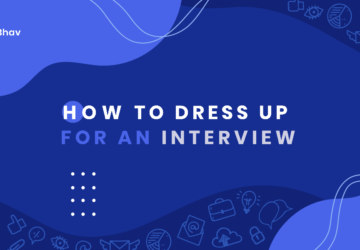Determining what to wear in the interview can be a difficult aspect of the procedure. How effectively you respond to questions and also how you represent yourselves both are important factors in getting hired. This is why presenting yourself in a professional manner may assist you in convincing the recruiting supervisor that you’d be a good match for the organisation. For an interview, though, it is usually recommended to overdress rather than dress down. Whenever you dress good, you will feel good. Below are a few tips on how to dress for an interview:
FOR WOMEN:
- Extreme make-up and jewellery should be avoided. It’s generally best to be modest. Ensure that your hairstyle and colour are both basic and fashionable.
- Avoid wearing stiletto heels or open-toed footwear. You must feel at ease strolling along in the footwear you wear, and it must be polished.
- Fragrance and powerful body sprays should be avoided.
- Wearing clothes which is excessively tight, reveal breast, or seem to be too small would not be a good option. Lace, transparent fabrics, and leopard patterns should also be avoided. If you decide to carry a skirt to the meeting, make sure it is just above your knees and you must be wearing stockings.
- Take a basic, professional handbag or envoy bag.
- Nail paint must not be applied and your nails must be well-shaped.
- You must avoid using colours that are too bright or fashionable. Suits in black, grey, or blue must be worn. It’s fine to include a splash of colour to the top, but it shouldn’t impede the entire image.
FOR MEN:
- Keep your hairstyle and facial hair tidy and groomed.
- Use neither cologne nor aftershave with a heavy scent.
- If you’re carrying a suit, go along with grey, charcoal, or navy blue and a corresponding shirt and tie.
- Take everything out of your pockets.
- Put on a good belt and footwear to go with it.
- Hold a portfolio or suitcase made of leather.
- Keep your fingernails neat and clean.
- Decent socks and shiny formal footwear are essential.
Conclusion
The above tips would assist you in selecting the perfect outfit that is suitable for any interviewing scenario. You might be required to interview with a similar firm multiple times, and you would not wish to wear a similar dress again. Whatever you select, make sure you’re wearing something which makes you feel good.





Recent Comments